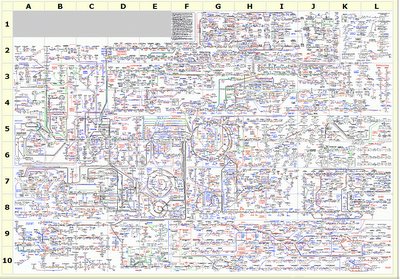Lies and more lies
Instead of redefining”organic” food in order to pad their bottom lines, food corporations should be responding to the demonstrated consumer demand for organic foods as currently defined.
But clearly, these corporations are not interested in providing products to satisfy the current consumers of organic foods. Rather these massive food concerns merely want to share in the profits to be made from this “niche” sector of the food market, and if it means thoroughly debasing the concept of “organic,” they see that as being of zero consequence.
As someone who chooses pay the price premium in order to purchase organic foods, I would like to ask these corporations if they really think I am so stupid that I would purchase their proposed redefined “organic” products and continue to pay that same price premium for lesser quality products? To answer that question, I need to describe my reasons for buying organic.
As a biologist, I have a profound respect for the complexity of living organisms, for the specificity of living enzyme systems,** and for the power of evolution by natural selection to fashion an organism that is adapted to its environment. There is no more intimate environmental interaction than the one between an organisim and the air, food and water it consumes.
Adaptation as configured by evolutionary forces requires one thing above all else, and that is time - generations of time - because it is only through the genetic tinkering occurring over generations that organisms are produced that are more, or less, suited to their environments, and those more suited are the ones more likely to produce subsequent generations.
What happens when, through massive human manipulations over a short period of time, the environment is changed? What happens when suddenly, foods are consumed that have never before existed on the planet? What is the likelihood that fine-tuned enzyme-driven metabolic pathways will not notice the difference? What happens when once-scarce foods are suddenly consumed in abundance? How will organisms respond when toxins such as heavy metals are magnified hundreds of times over to appear in their diets? What happens when completely novel substances such as chlorinated hydrocarbons (e.g., pesticides and Splenda) enter the food system?
These and hundreds of similar questions have either not yet been answered, or have been answered with negative results. Food corporations and food scientists who pretend that anything that contains a reasonable ratio of protein, carbohydrate, and fat should qualify as food are, in my opinion, grossly in error, because from an evolutionary and environmental perspective, it simply is not so.
Living in a free country, I am entitled to my opinions, and I am also entitled to make my own decisions based upon those opinions, and from a moral perspective, this is never so true as when it applies to my choices about how to nourish my own corporeal being. Others may disagree with my opinions, but as long as this is not a totalitarian state, they do not have the right to challenge my decisions (except in the limited realm of illegal substances).
My choice is to eat food as free of contaminants as possible, and in as unprocessed a form as possible. I want food that would pretty much be recognized as food by humans over the past fifty generations, not some manufactured biochemical concoction invented by a chemist to lend shelf-life, or bright color, or de novo flavoring, or mouth appeal, or cheaper production, or any of numerous other misguided intents.
I want food that is free of trans-fats, high fructose corn syrup, artificial colors and flavorings and sweeteners, refined flours, pesticides, herbicides and other toxins, antibiotics, hormones, and other drugs and additives. I want the animal-based foods I eat to come from animals that live decent lives and that eat foods natural to their kind. I want the farms that produce the foods I eat to operate on principles of sustainability, and respect for the air and water. I want my food to be free of even trace amounts of such things as “boiler additives, disinfectants and lubricants,” substances that would be allowed in organic foods if this amendment passes.*
Big food producers believe they should be “grant[ed] temporary exemptions to allow conventionally grown ingredients like corn, soybean oil or tomatoes in organic food when organic versions are not ‘commercially available’ ”* - which demonstrates nothing so much as their complete disregard for truth in labeling: what it really means is that big food producers want to use cheaper ingredients but charge a premium price while identifying their goods as the premium product. There is a word for such behavior, and that word is lying.
Ultimately, that is what it boils down to: truth or lies in labeling. I have no problem with the corporations arguing against the value of organic foods, but they have absolutely no right to hijack the meaning of the term to encompass their products that do not meet the standard. If they want to join the game with their own version of “organic,” they need to also come up with their own term, and then compete, openly and honestly. Sadly, that does not seem to be an option in their profit-oriented playbook.
--------------------------------
*“What Is Organic? Powerful Players Want a Say,” by Melanie Warner, New York Times, Nov. 1, 2005.
** Showing a simplified map of metabolic pathways - for more details, go to http://www.expasy.org/cgi-bin/show_thumbnails.pl



0 Comments:
Post a Comment
<< Home